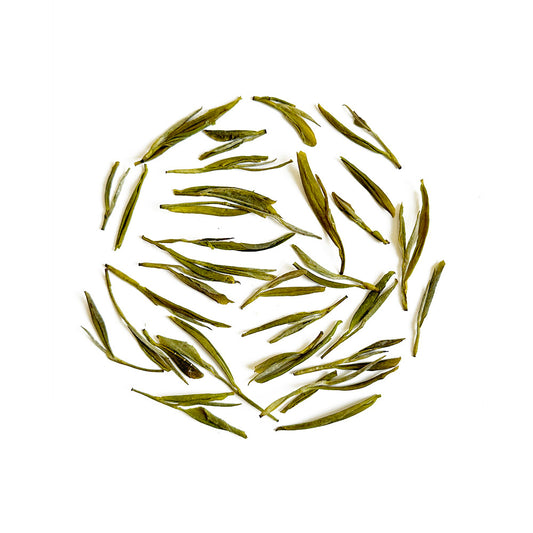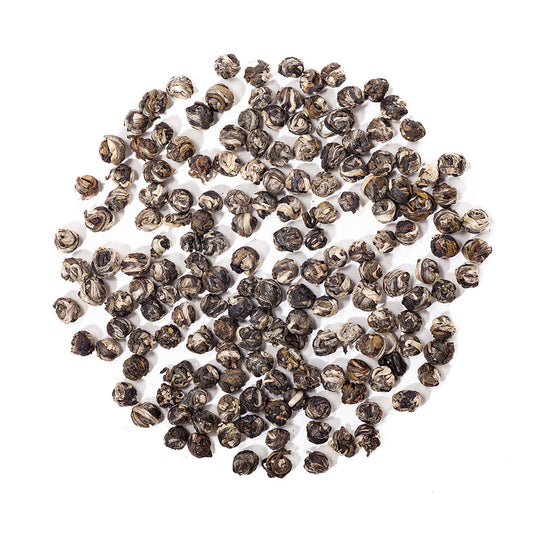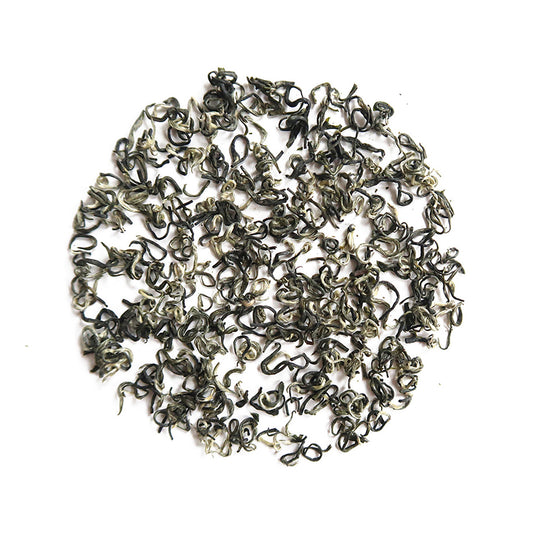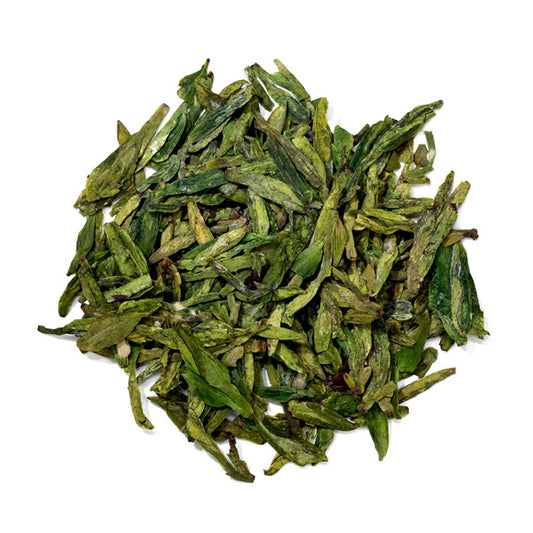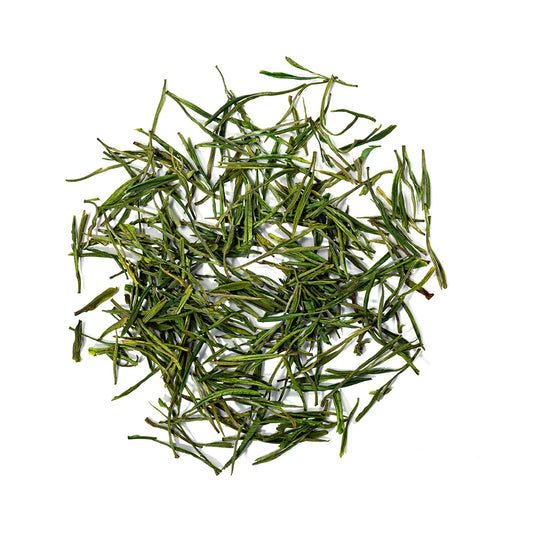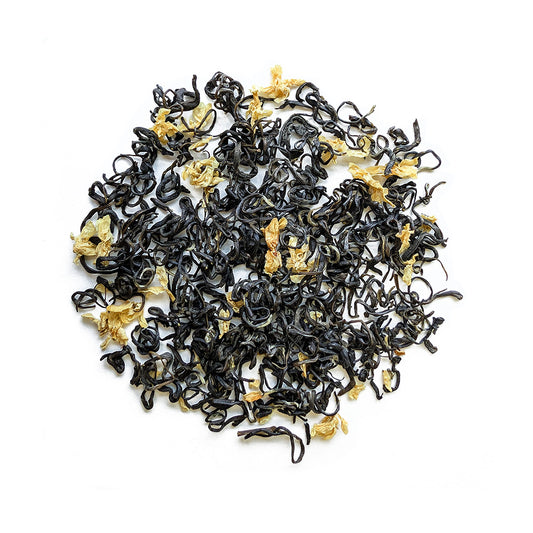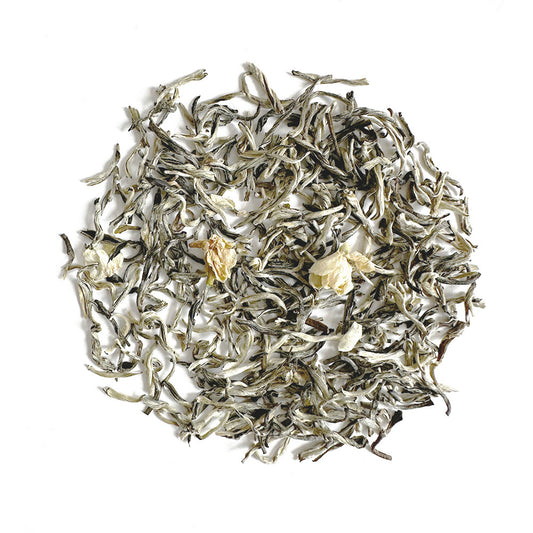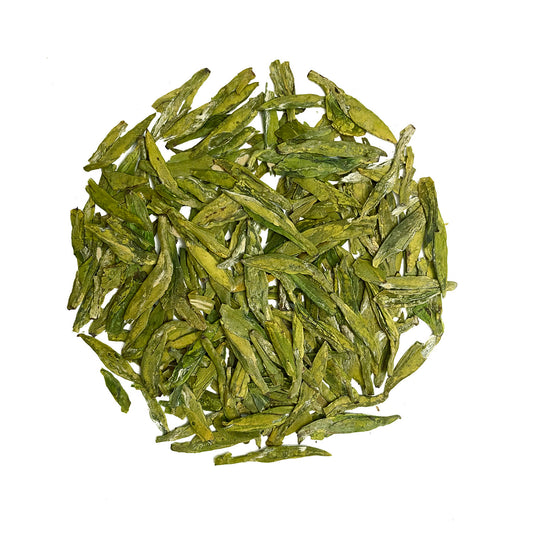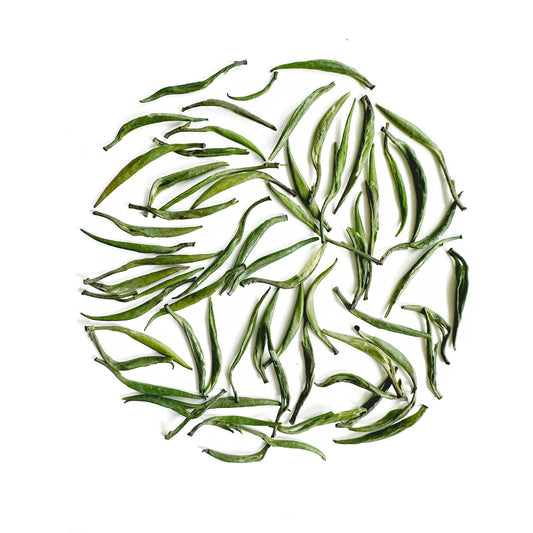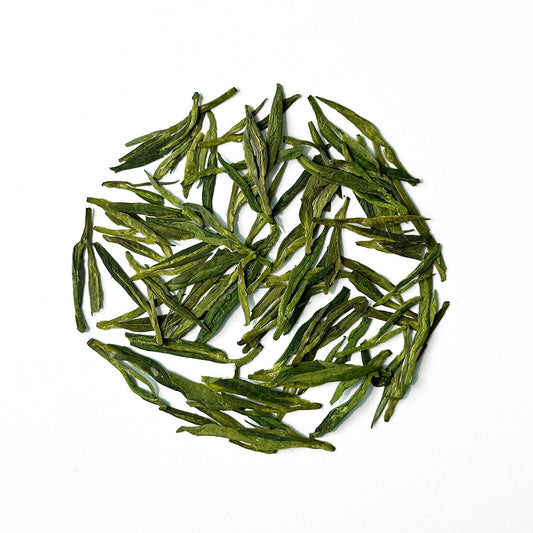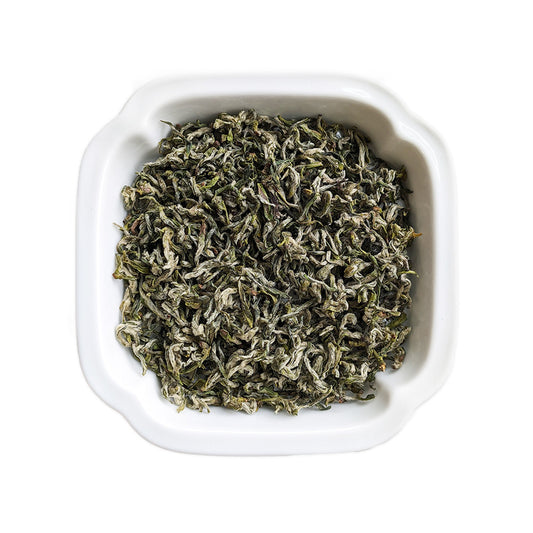Collection: Green Tea
-
Enshi Yulu (Jade Dew) Green Tea
Regular price €8,95 EURRegular priceUnit price / per€9,95 EURSale price €8,95 EURSale -
Anji Huang Jin Ya (Golden Bud) Green Tea
Regular price €12,55 EURRegular priceUnit price / per€13,95 EURSale price €12,55 EURSale -
Jasmine Dragon Pearls
Regular price €2,95 EURRegular priceUnit price / per -
Bi Luo Chun Green Tea
Regular price €13,50 EURRegular priceUnit price / per -
West Lake Dragon Well (Long Jing) Green Tea
Regular price €10,95 EURRegular priceUnit price / per -
Huang Shan Mao Feng Green Tea
Regular price €9,95 EURRegular priceUnit price / per -
Anji Bai Cha - Anji White Green Tea
Regular price €14,95 EURRegular priceUnit price / per -
Jasmine Tea Deluxe with Flowers
Regular price €2,50 EURRegular priceUnit price / per -
Liu An Gua Pian (Melon Seed) Green Tea
Regular price €13,95 EURRegular priceUnit price / per -
'Snow Jasmine' Green Tea Buds
Regular price €13,85 EURRegular priceUnit price / per -
Xin Yang Mao Jian Green Tea
Regular price €10,75 EURRegular priceUnit price / per -
First Flush West Lake Dragon Well (Long Jing)
Regular price €19,50 EURRegular priceUnit price / per -
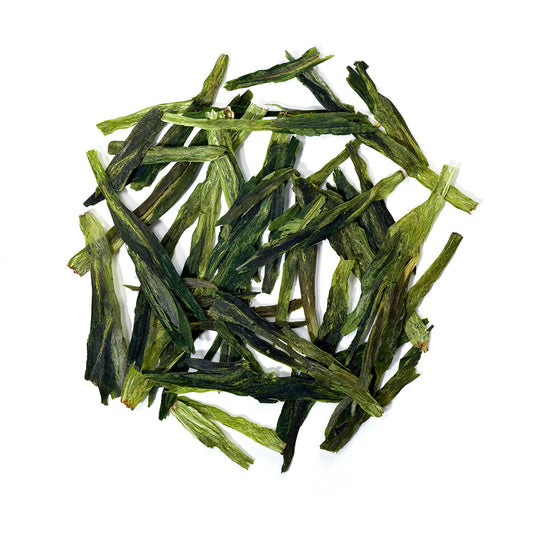 Sold out
Sold outTai Ping Hou Kui Green Tea
Regular price €14,95 EURRegular priceUnit price / per -
Zhu Ye Qing (Bamboo Leaf Green) Green Tea
Regular price €14,95 EURRegular priceUnit price / per -
Winter West Lake Dragon Well (Longjing) Green Tea
Regular price €13,95 EURRegular priceUnit price / per -
Meng Ding Gan Lu (Luxury Tea Collection)
Regular price €21,95 EURRegular priceUnit price / per
Do you have questions about Green Tea?
Green Tea 101
What is Green Tea
Green teas, unlike other tea types, do not undergo an intensive withering process. Instead, they’re shortly dried in the shade and then pan-fried. This process is also called the ‘kill-green’ step, which stops the tea leaves from oxidising. As a result, the tea maintains their green colour. There's one exception, our Enshi Yulu is als steamed instead of pan-fried, which is similar to Japanese green teas.
The production process of green tea is relatively simple, but the taste and quality of green tea can vary depending on the cultivar, terroir, and processing methods. Green tea can have a wide range of flavors, from subtle and light teas with refreshing citrus and floral aromas, to robust and full-bodied tea teas with vegetal, nutty, and seaweed aromas.
What are the benefits of Green Tea
Many studies have examined the health benefits of green tea. However, most studies are done on mice, that are given a high dosage of green tea, which may be far from representative for humans. And unfortunately, many commercial claims about the benefits of green teas are based on such studies.
To get a better understanding of the benefits of green tea, we should look at ‘cohort studies’. These studies that follow human participants who drink green tea regularly for a long period of time. The findings are then compared to other participants who do not drink tea at all. Many of these studies are done in China and Japan, where green tea is often consumed.
According to these cohort studies, green tea may reduce the risk of certain types of cancer, dementia, and heart disease. These are serious and common health problems that affect many people around the world. Green tea may help prevent or delay them by providing antioxidants, anti-inflammatory, and neuroprotective effects. Instead of relying on random articles and blog posts online that may be biased or inaccurate, we recommend you to read the original cohort studies yourself. You can find them easily by visiting scholar.google.com and searching for "cohort studies green tea".
Green Tea & caffeine
Green tea contains caffeine, which is a natural stimulant that can help you stay alert and energised. However, the amount of caffeine in green tea is usually consider lower than other types of tea or coffee. For your reference, green tea may contain 24-45 mg per 230ml / 8oz serving. However, this may not always be true, as some green teas that have more buds or are powdered may have higher caffeine content than others. Buds are the young and tender parts of the tea plant that contain more caffeine than older leaves. Powdered green teas, such as matcha, are made from grinding the whole leaf, which means that you consume more caffeine than from just the infusion.
Where to buy Green Tea
If you are looking for green tea, you have many options to choose from. You can find green tea in grocery stores, specialty shops, or online tea stores. However, if you want to buy authentic Chinese green tea, we recommend you to browse our green teas above. We have a range of high-quality green teas from different regions of China. If you are not based in the EU, you can also visit our global store (Teasenz.com) to discover more green teas.
Other FAQ about Green Tea
Does Chinese green tea help you lose weight?
Green tea can be part of a healthy weightloss diet. We recommend to drink a cup of green tea 30 minutes after breakfast and lunch, and switch to caffeine-free herbal/flower teas in the evening. What you should avoid is weightloss green tea powder, because they may have serious side effects on the stomach.
How do you say green tea in Chinese?‘Lu Cha’
How to make Chinese green tea?There are 3 ways to prepare green tea. The western way, the traditional way, and cold brewing. For details on how to brew each green tea, you make read the steeping instructions on the individual pages.


